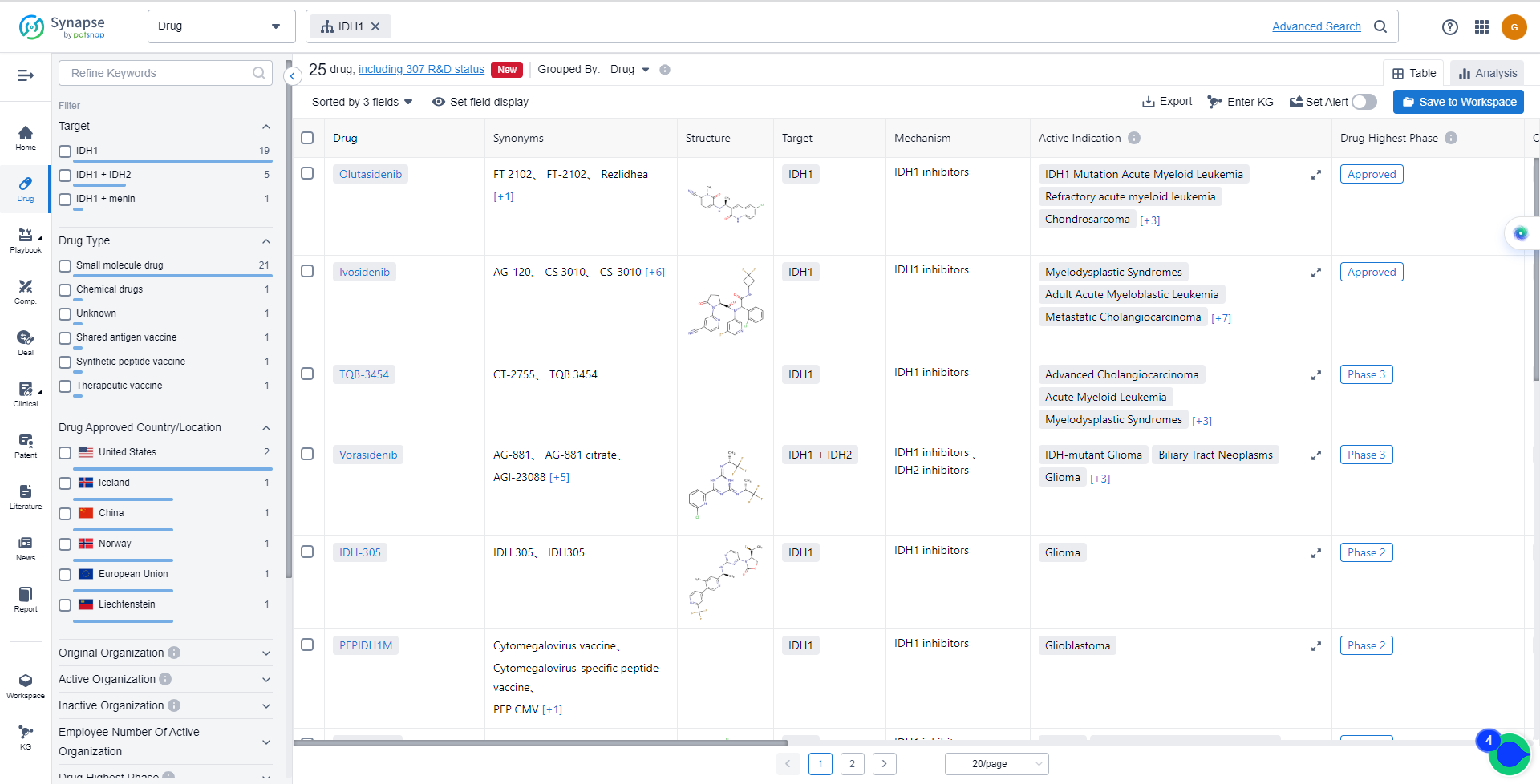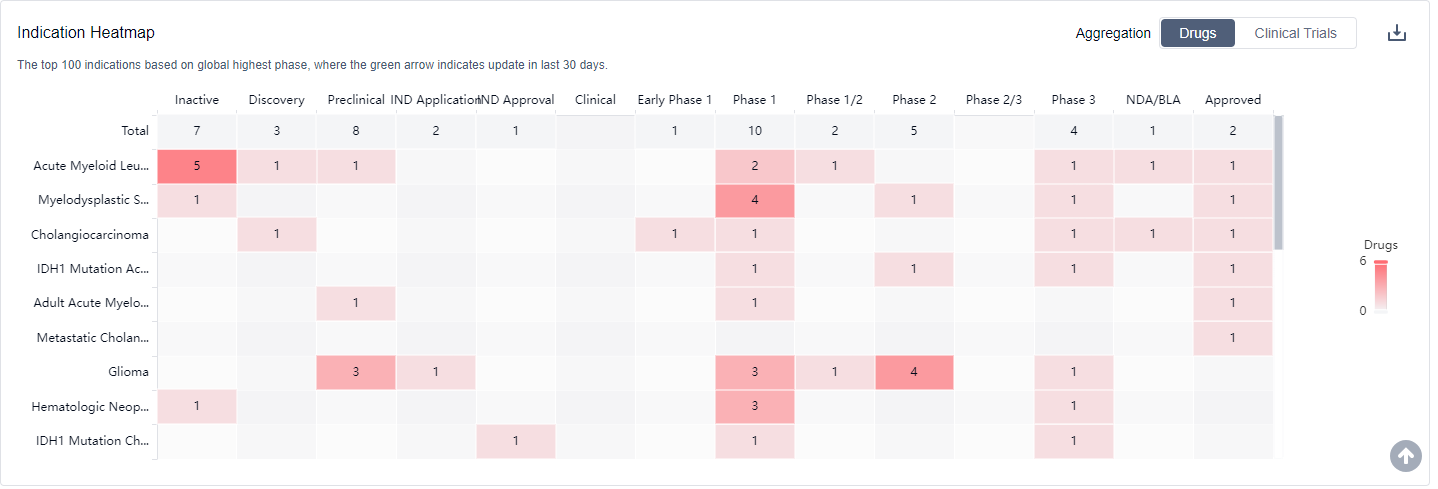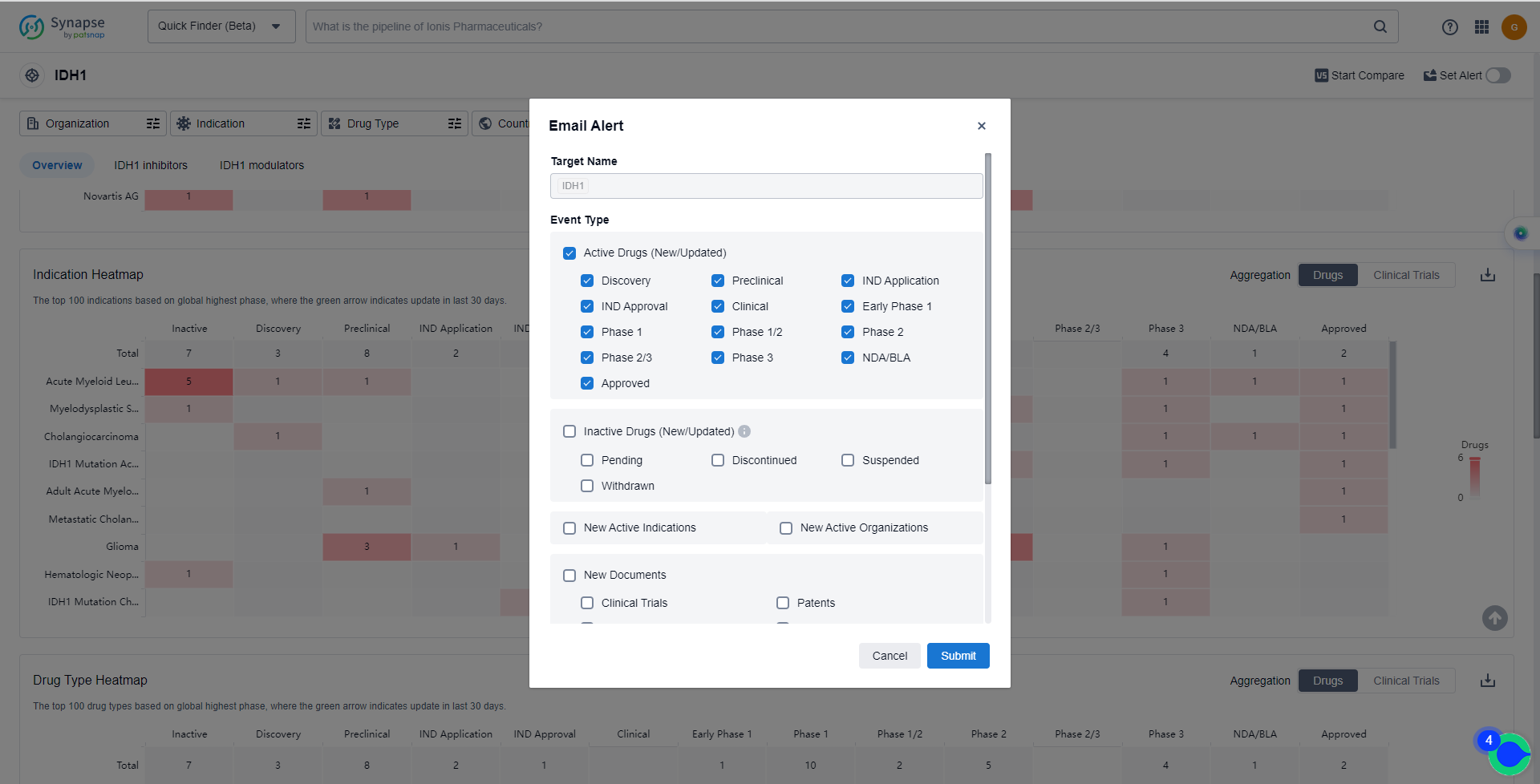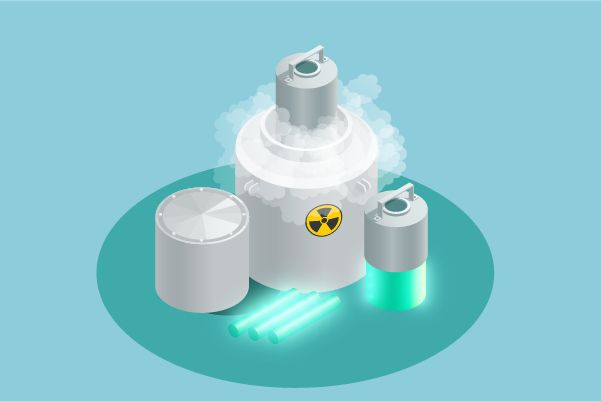What are IDH1 inhibitors and how do you quickly get the latest development progress?
IDH1, or isocitrate dehydrogenase 1, is an enzyme that plays a crucial role in cellular metabolism. It is primarily found in the cytoplasm and peroxisomes of human cells. IDH1 catalyzes the conversion of isocitrate to alpha-ketoglutarate in the presence of NADP+. This reaction is a key step in the citric acid cycle, which generates energy and building blocks for cellular processes. Additionally, IDH1 has been implicated in various cellular functions, including redox homeostasis, lipid metabolism, and cellular defense against oxidative stress. Dysregulation of IDH1 has been associated with several diseases, including cancer, making it an important target for therapeutic interventions.
IDH1 inhibitors are a type of medication used to treat different types of cancer, including acute myeloid leukemia and glioma. IDH1 inhibitors can effectively reduce the level of ®-2-HG in tumor cells, which is one of the most effective molecular biomarkers in tumor cells and has been shown to have considerable diagnostic potential. The first-generation mutIDH1 selective inhibitor Ivosidenib can effectively reduce the level of R-2-HG in vitro and was approved for AML treatment in 2018. Olutasidenib (Rezlidhia) is another IDH1 inhibitor, and the FDA approved Olutasidenib for marketing based on an open-label, single-arm, multicenter clinical trial that included 147 adult patients with relapsed or refractory AML carrying IDH1 mutations. Olutasidenib has shown good tolerability, and the characteristics of adverse reactions are consistent with the symptoms and characteristics usually experienced by AML patients receiving treatment. The most common adverse reactions (≥20%) are nausea, fatigue/discomfort, joint pain, constipation, increased white blood cells, difficulty breathing, fever, rash, mucositis, diarrhea, and elevated transaminases.
The analysis of target IDH1 reveals a competitive landscape with multiple companies actively developing drugs at different stages of development. Les Laboratoires Servier SAS, CStone Pharmaceuticals Co. Ltd., Agios Pharmaceuticals, Inc., Novo Nordisk A/S, and Rigel Pharmaceuticals, Inc. are among the companies growing fastest under this target. The indications for IDH1-targeted drugs cover a wide range of cancers and hematologic disorders, indicating the potential for these drugs in various therapeutic areas. Small molecule drugs are progressing rapidly, with intense competition from biosimilars. The research and development institutions involved in developing biosimilars include Duke University, German Cancer Research Center, NMS Group SpA, and Shanghai Institute of Materia Medica Chinese Academy of Sciences. The United States, China, and the European Union are the countries/locations with the fastest development under the current targets, with other countries/locations also making significant progress. Overall, the analysis suggests a competitive landscape and a promising future for the development of drugs targeting IDH1.
The mechanism of action of IDH1 inhibitors
IDH1 inhibitors are a type of medication that specifically target and inhibit the activity of the isocitrate dehydrogenase 1 (IDH1) enzyme. Isocitrate dehydrogenase is an enzyme involved in the citric acid cycle, which is a crucial metabolic pathway in cells. Mutations in the IDH1 gene can lead to the production of a mutant form of the IDH1 enzyme, which is associated with various types of cancer, including gliomas and acute myeloid leukemia.
IDH1 inhibitors work by binding to the mutant IDH1 enzyme and blocking its activity. By inhibiting the mutant IDH1 enzyme, these inhibitors help restore normal cellular metabolism and prevent the accumulation of oncometabolite 2-hydroxyglutarate (2-HG), which is produced by the mutant enzyme. The accumulation of 2-HG is believed to contribute to the development and progression of cancer.
From a biomedical perspective, IDH1 inhibitors have shown promise as targeted therapies for cancer treatment. Clinical trials have demonstrated their efficacy in certain patient populations with IDH1-mutated cancers, leading to the approval of some IDH1 inhibitors by regulatory authorities for specific indications. These inhibitors represent a novel approach in precision medicine, as they selectively target cancer cells harboring IDH1 mutations while sparing normal cells.
It is important to note that IDH1 inhibitors are prescription drugs and should only be used under the guidance of a healthcare professional. The specific indications, dosing, and potential side effects may vary depending on the specific IDH1 inhibitor being used and the type of cancer being treated.
Catalog of IDH1 Inhibitors
The currently marketed IDH1 inhibitors include:
For more information, please click on the image below.
What is the purpose of using IDH1 inhibitors?
IDH1 inhibitors can be used to treat different types of cancer, including acute myeloid leukemia and glioma. For more information, please click on the image below to log in and search.
How can I get the most recent advancements in IDH1 inhibitors?
In the Synapse database, you can keep abreast of the latest research and development advances of IDH1 inhibitors anywhere and anytime, daily or weekly, through the "Set Alert" function. Click on the image below to embark on a brand new journey of drug discovery!








